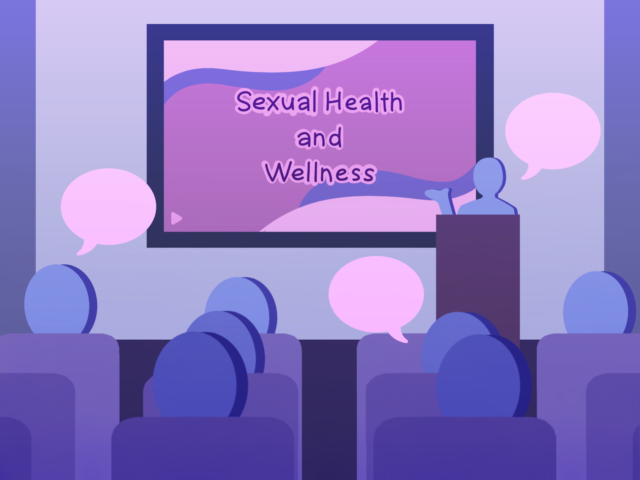In light of the Supreme Court’s recent decision in Dobbs v. Jackson Women’s Health Organization – which overturned Roe v. Wade and revoked the constitutional right to abortion – ensuring access to sexual health information is more important than ever.
While California remains likely to keep abortion legal, comprehensive sex education is conducive to preventing sexually transmitted diseases and other potentially threatening health concerns, in addition to decreasing the likelihood of unwanted pregnancy. Access to such education is essential to promoting a positive environment without harmful sexual stigma.
First-year and transfer students are currently required to participate in educational modules on topics such as Title IX, financial literacy and alcohol use. These resources are helpful – however, without critical information on sexual wellness, they remain incomplete. Incorporating more thorough sex education and encouraging open conversations about on-campus resources as a part of the new Bruin experience could be a life-saving benefit to our student body.
Sofie Sheldon, program manager and youth educator at the UCLA Art & Global Health Center, said there is a need for conversations about sex within a college demographic, especially one with such a diverse student body.
“Not everyone comes from California and got that comprehensive sex ed in ninth grade,” Sheldon said. “And we’re finding that even if you do go to high school in California, there’s still a good chance you might not get the sex ed that is mandated just because they’re able to sweep it under the rug.”
Many people may rely on independent or high school level sex education, but disparities in how this information is actually distributed call for standardization of comprehensive sex education at UCLA, especially considering the emphasis on sex within a college atmosphere.
“I came from Connecticut, and in my sex ed there, never once did a teacher pull out a condom and show a condom demo, which is sort of the bare minimum of what they should be sharing,” Sheldon said.
However, comprehensive sex education should go beyond the bare minimum of condom demonstrations, Sheldon added. Addressing topics such as consent and sexuality as well as making resources clear and accessible is necessary to destigmatize conversations about sex.
Ensuring that students know where to go when seeking help from UCLA’s resources is essential. Currently, UCLA offers a plethora of resources for sexual health and partnership. In addition to the UCLA Art & Global Health Center, other organizations such as UCLA Sexperts, Student Health Education and Promotion and Bruin Love Station promote a sex-positive environment on campus by providing access to contraceptives and approaching sex from a pleasure-based standpoint.
The Arthur Ashe Student Health and Wellness Center also provides resources for reproductive clinical services such as birth control, contraceptives and professional consultation – but without comprehensive information on how to access these tools, students may be left confused. Due to the certain shame associated with sex and seeking resources such as contraceptives, pregnancy testing and STD testing in a college-aged demographic, it is of the utmost importance for students to know how and where they can receive help.
“We need to normalize these issues and talking about sexual health in general so that we can ensure that people have the knowledge to make their own decisions,” said Isaiah Baiseri, UCLA Art & Global Health Center communications director and media designer.
Sheldon and Baiseri, who both work with the UCLA Sex Squad to disseminate information on sexual health to local high school students, take an entertainment-based approach to touch on important issues.
One resource to foster conversation about sex is currently offered through UCLA Residential Life, as well as initiatives spearheaded by individual dorm floors.
“Resident Assistant (RA) staff members often partner with campus entities to provide programs for their residents on health issues, including sex education, healthy relationships and consent,” said UCLA spokesperson Ricardo Vazquez said in an emailed statement.
Reflecting on her experiences as a student at UCLA, Sheldon added that it was often up to each RA to create space for these conversations. If a particular RA didn’t feel like hosting these events or giving them their full attention, they likely wouldn’t occur.
In addition to the strides already being taken to promote sex positivity and destigmatization on campus, ensuring that all students are on the same page as they begin their education at UCLA will benefit their health and social awareness. Taking steps to inform students of the present resources available to them can improve their mental and physical well-being on campus.
Incorporating sex education modules, promoting information about present resources and having open conversations for first-year students can improve the narrative for undergraduate students.


Comments are closed.